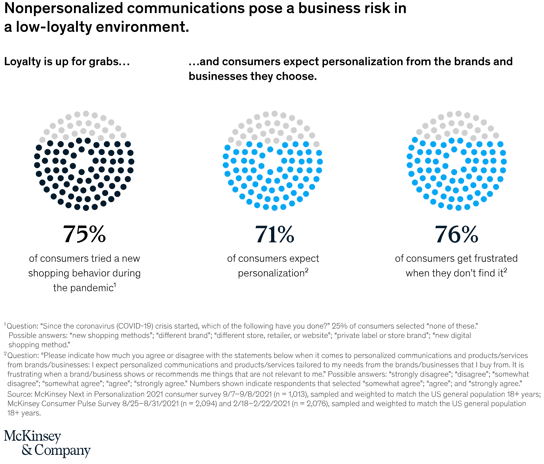AI and Data Analytics: Shaping the Future of Retail Industry
AI and Data Analytics: Shaping the Future of Retail Industry
Data has quickly become the lifeblood of successful retail operations. Retail data analysis, powered by advanced AI technologies, is revolutionizing the way businesses understand and interact with their customers.
By leveraging AI, retailers can transform vast amounts of data into actionable insights, enabling them to make informed decisions, enhance customer experiences, and stay competitive in a dynamic market. This article explores the critical role of AI in retail data analysis and how it shapes the future of the retail industry.
Quick Takeaways
- AI improves accuracy, efficiency, and customer insights in retail data analysis.
- AI-driven analysis enables personalized customer experiences and optimized inventory management.
- Retailers must navigate data quality, system integration, and data privacy concerns to effectively implement AI.
- Advancements in AI technologies will further revolutionize retail operations, making predictive analytics a cornerstone of strategic planning.
The Role of AI in Retail Data Analysis
AI and machine learning have become indispensable tools in the realm of retail data analysis. These technologies enable retailers to sift through enormous datasets, identify patterns, and derive valuable insights that would be impossible to uncover manually.
Improved Accuracy and Efficiency
AI algorithms can process vast amounts of data with remarkable speed and accuracy. This capability allows retailers to analyze sales trends, customer behaviors, and inventory levels in real time, leading to more precise and efficient decision-making processes.
Enhanced Customer Insights
AI-driven data analysis provides a deeper understanding of customer preferences and behaviors. By analyzing purchasing patterns and engagement metrics, retailers can tailor their marketing strategies and product offerings to meet individual customer needs, resulting in increased customer satisfaction and loyalty.
Predictive Analytics for Better Decision-Making
AI's predictive analytics capabilities allow retailers to forecast future trends and behaviors accurately. By anticipating customer demands and market shifts, businesses can optimize inventory levels, plan effective marketing campaigns, and make proactive adjustments to their strategies, ensuring they stay ahead of the competition.
Key Areas Where AI and Data Analytics are Impacting Retail
By integrating AI into these key areas, retailers can leverage the full potential of retail data analysis, driving innovation and achieving sustainable growth.
Customer Personalization
AI technology enables retailers to analyze customer data and deliver personalized shopping experiences. By leveraging insights from purchase history, browsing behavior, and demographic information, retailers can create targeted marketing campaigns and personalized product recommendations, enhancing the overall customer experience.
Research by McKinsey indicates that 71% of consumers expect companies to provide personalized interactions, and 76% feel frustrated when these expectations are not met.

Implementing AI-driven personalization strategies can significantly improve customer satisfaction and loyalty, driving up engagement and sales.
Inventory Management
Effective inventory management is crucial for retail success. AI-driven demand forecasting and inventory optimization help retailers maintain the right stock levels, reducing both stockouts and overstock situations. This optimization leads to better resource allocation and cost savings.
Pricing Strategies
Dynamic pricing models powered by AI allow retailers to adjust prices in real time based on various factors such as demand, competition, and market conditions.

This real-time data analysis ensures that pricing strategies are always aligned with current market trends, maximizing revenue and profitability.
Supply Chain Optimization
AI enhances supply chain operations by providing predictive analytics that help retailers anticipate disruptions and optimize logistics. This streamlined approach results in a more efficient supply chain, reducing costs and improving overall operational efficiency.
Challenges and Considerations in Implementing AI in Retail Data Analysis
While the benefits of AI in retail data analysis are significant, there are challenges that retailers must address to fully realize its potential.
Common Challenges Faced by Retailers
Implementing AI solutions can be complex and resource-intensive. Retailers often face challenges such as:
- Data quality issues
- Integration with existing systems
- The need for specialized skills
Ensuring that data is clean, accurate, and consistently formatted is crucial for effective AI analysis. Additionally, integrating AI tools with legacy systems requires careful planning and execution.
Ethical Considerations and Data Privacy Concerns
As AI relies heavily on data, ethical considerations and data privacy concerns become paramount. Retailers must navigate issues related to data collection, storage, and usage to ensure compliance with regulations and maintain customer trust. Transparent data practices and robust security measures are essential to address these concerns and build consumer confidence.
Solutions and Best Practices for Overcoming Challenges
To overcome these challenges, retailers should invest in high-quality data management practices and provide ongoing training for their staff. Collaborating with experienced AI vendors can also streamline the implementation process.
By adopting a phased approach, retailers can gradually integrate AI solutions, allowing for adjustments and improvements along the way. Ensuring ethical AI practices and prioritizing data privacy will help retailers maintain a positive reputation and foster long-term customer relationships.
The Future of Retail Data Analysis with AI
As AI technology continues to advance, the future of retail data analysis looks promising. Emerging trends and technologies will further enhance the capabilities of AI, providing retailers with even more powerful tools to drive their businesses forward.
Emerging Trends and Technologies
New AI-driven technologies, such as natural language processing and computer vision, are set to revolutionize retail data analysis. These advancements will enable more sophisticated customer interactions and deeper insights into consumer behavior.

Retailers can expect to see innovations in areas such as virtual shopping assistants, automated customer service, and advanced visual search capabilities.
Predictions for the Future of AI in Retail
In the coming years, AI will become even more integrated into the retail industry. Retailers will increasingly rely on AI to:
- Automate routine tasks
- Enhance customer engagement
- Optimize their operations
Predictive analytics will play a crucial role in strategic planning, allowing retailers to anticipate market trends and make data-driven decisions with greater confidence.
How Hypersonix is Leading the Way in AI-Driven Retail Data Analysis
Hypersonix is at the forefront of this transformation, offering cutting-edge AI solutions tailored to the needs of the retail industry. With a focus on real-time data processing, predictive analytics, and user-friendly interfaces, Hypersonix empowers retailers to harness the full potential of AI. By providing actionable insights and innovative tools, Hypersonix helps retailers stay competitive and achieve sustainable growth in an increasingly data-driven world.
Discover how Hypersonix's AI-driven retail data analysis solutions can revolutionize your business. Book a demo today to unlock the power of data-driven decision-making and drive your retail success!






